Count on Accountability: 5 Productivity Support Solutions
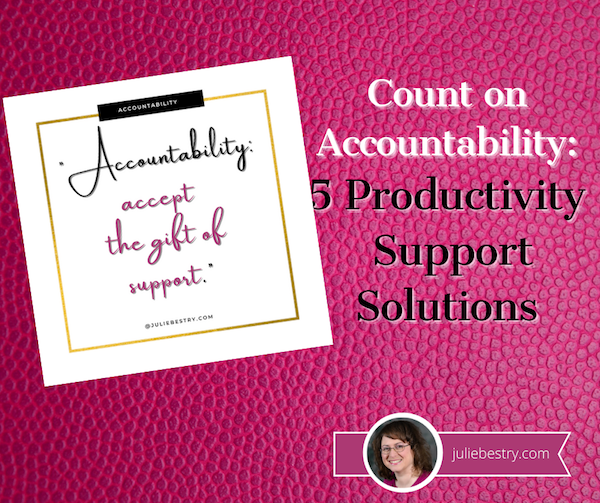
Procrastination strikes for many reasons: perfectionism, fear of failure, lack of inspiration. Sometimes, there’s no apparent reason why we procrastinate on completing a task or working on a project; we just know that do and we wish that we didn’t.
Canadian psychology professor and all-around expert on procrastination, Timothy Pychyl, author of Solving the Procrastination Puzzle: A Concise Guide to Strategies for Change, explains that procrastination isn’t just delay. He explains that procrastination is “a voluntary delay of an intended act,” one where the person procrastinating is cognizant that the delay is going to have a cost, whether that cost is financial, interpersonal, professional, legal, or otherwise.
When we procrastinate, we know that there’s no upside; we aren’t merely weighing a logical choice between two options of equal value. It’s less, “geez, how can I decide on whether to go on this romantic anniversary date with my spouse or prepare for my presentation this week?” and more, “Eek, I’m feeling icky about doing this thing for some reason and I’ll latch on to any random thing, like bingeing a sit-com I’ve seen in its entirety three times!”
Experts like Pychyl have found that at its base, procrastination is “an emotion regulation strategy” – a way to cope with a particular emotion while failing to self-regulate and perform a task we know we need to do. We convince ourselves we’d rather feel good now, thereby causing more trouble for our future selves.
And be assured, professional organizers and productivity experts are not immune. I’ll admit that I hit a Pandemic Productivity Wall in February on a project I could normally complete in my sleep, but every time I sat down to attempt it, I couldn’t focus and got anxious. We all know how this feels.
Today, we’re going to look at one particular well-researched strategy for outmaneuvering our procrastinating selves: accountability.
So, What Is Accountability?
At its most basic, accountability is having some external source hold your feet to the metaphorical fire. It can work in many ways.
As professional organizers, my colleagues and I often perform a technique popularized in the ADHD community called body doubling. We literally work side-by-side, often quietly folding clothes or sorting papers while clients sort through their possessions or pay their bills. When you’re on your own, you might find ways to delay or distract yourself, but when someone is there, investing their time in you (and you’re investing your time and money to achieve your goals), body doubling helps you push past the anxiety and be more productive.
Accountability can be a matter of having someone check in with you. Knowing that someone else is taking an active role in caring whether you get a task done (but who doesn’t directly benefit from you completing the task, so it doesn’t feel like nagging) can get you over the hump. It’s all about support.
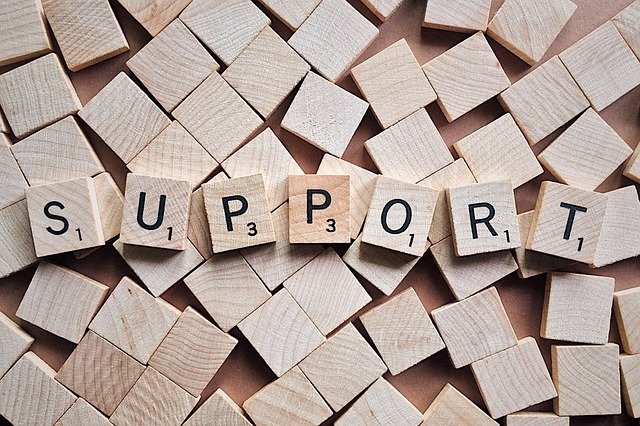
Image by Wokandapix from Pixabay
Accountability can be accomplished by dangling the carrot to give you an emotional reward, or threatening with the stick, yielding an unfortunate experience or event even worse than the result of your procrastination.
There are five main ways to get accountability. Not all will work for every person or in every situation, so it’s worth experimenting.
FIND AN ACCOUNTABILITY PARTNER
The first category for getting accountability support is to seek out one individual at no financial cost.
- A close friend or loved one – Getting support from someone close to you works best when the stakes are low and what you need most is a cheerleader. Let’s say that you’ve literally hit the wall in your closet – all the walls – and there’s just too much clothing in not enough space. Every time you attempt to start purging your closet, the prospect of trying things on and discarding much-loved clothes slows you down.
In the parlance of Grey’s Anatomy, call “your person,” the one you could call for anything.
Explain to your friend what you want to do. Agree to talk at the start, and set the alarm for a reasonable amount of time, perhaps 45 minutes. When the alarm goes off, you call or text her (or she calls or texts you, depending on what you’ve decided), and you can report in. If you had trouble deciding about a few items, you can have an ad hoc fashion show, or otherwise seek your friend’s advice.
You see, the sneaky thing about accountability is that many of us are bad at doing things for ourselves. But the minute we know that someone else cares whether we accomplish the task, even if they have no inherent skin in the game, we tend to push forward to accomplish it.
Note: this isn’t applicable to everyone. While many of would fall into Gretchen Rubin’s Obliger or Upholder categories, per her Four Tendencies of responding to expectations, there are a handful of rebels and Questioners out there who chafe at fulfilling others’ expectations. If that’s you, accountability may still work for you, but more because of the camaraderie than the idea of fulfilling implied obligations to someone else.
I’ve had a number of accountability buddies over the years, including professional organizer Jeri Dansky, with whom I used to trade daily accountability emails, and my long-time accountability partner, Dr. Melissa Gratias. I have a virtual meeting once a month with Melissa and her dog Dobby, where we review what we said what we would accomplish and set new goals. This isn’t for time-specific tasks, but more for having a partner-in-crime to keep focused on growing our businesses.
Not everyone feels comfortable asking a close friend or relative for this kind of support; sometimes we fear feeling too judged by the people we like the most. (True story: I once told PaperMommy, “I value your opinion too much to actually want to hear it!”)
Sometimes we fear feeling judged by the people we like the most. (True story: I once told @PaperMommy, 'I value your opinion too much to actually want to hear it!)' Share on XIf you’d still like to find just one accountability buddy, whether for an ad hoc task or perhaps for a longer term partnership, you may be more comfortable setting up an accountability relationship with someone you don’t know as well, like a colleague. That little bit of competitive friction may push you through your procrastination.
Other opportunities you might try:
- Put a post on social media and ask if anyone would like a short-term accountability partnership (for an hour, a day, a week…)
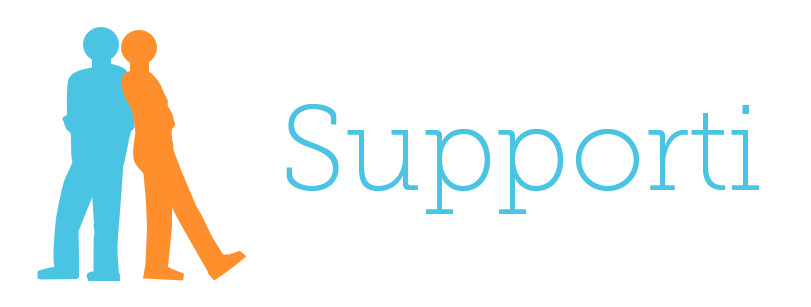
- Try an app like Supporti, which pairs you up with a one-on-one buddy for one week at a time.

- For your professional endeavors, consider Focusmate, a virtual co-working model where you “work by connecting to other professionals who have committed to being accountable for finishing their most important work.”
Focusmate claims that this style of virtual coworking “harnesses pillars of psychology proven to boost productivity 200-300%.” You set the time(s) you want to be productive, and Focusmate sends you an email to confirm your virtual session. (You need to use Chrome on your computer, or Chrome or Safari on mobile.)
At the appointed time, you greet your partner, declare your goal, and work for 50 minutes, quietly but in tandem, approximating the body doubling model. You get three focused sessions in a week for free. Read more about this platform in Mel Magazine‘s I Let A Stranger Watch Me Work For a Day — And I’ve Never Been More Productive. (As an added bonus, I was surprised and delighted to see that Melissa Gratias was interviewed!)
JOIN AN ACCOUNTABILITY GROUP
Support groups are popular for a reason. Whether you’re talking about a Twelve Step program, a lifestyle program like Weight Watchers, or school or professional groups, members support one another toward a like-minded goal. This is ideal when you’re not looking for someone to help you stick with a task, but progress toward a larger life achievement. Consider:
- Mastermind groups seem like a newfangled option, but they’ve actually been around for almost a century, when they were proposed by Napoleon Hill in his 1925 book The Law of Success, and explained in more detail in his 1937 book Think and Grow Rich. Basically, mastermind groups are peer-to-peer mentoring group; everyone’s a mentor, and everyone’s a protégée. Members present their professional concerns, brainstorm together, offer input…and provide accountability.
Golden Circle, the veteran members of NAPO, offered us the opportunity to form our own mastermind groups a few years ago. I’m delighted to be a member of the PM Crew (we meet in the evenings because Paper Doll is not a morning person), which includes my colleagues Maria White in Ashburn, VA, Nancy Haworth in Raleigh, NC, Yve Irish in Rochester, NY, and Karen Sprinkle (just up the highway from me) in Knoxville, TN. We meet once a month by phone or Zoom, send weekly group emails recapping our progress on the prior week’s goals and setting goals for the upcoming week, and share LOTS of supportive texts. Yve, in particular, is a star when it comes to sending supportive memes, gifs, and bitmojis:
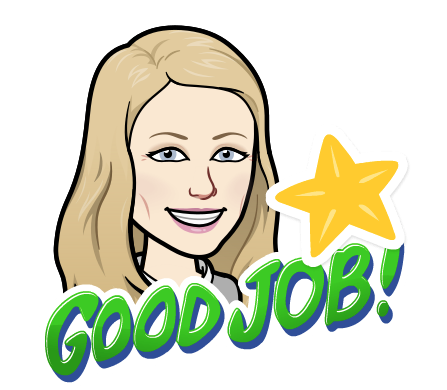
- Study groups have been around since at least ancient Greece. Law schools and MBA programs, in particular, promote the use of study groups: they study cases, debate approaches, and help one another maintain focus and keep pace. Whether you’re a freshman in college or taking Bible study classes, whatever you’re trying to learn, forming a study group can help you ensure that you’ll hit your goals and gain confidence in both the content and your own skills.

- Virtual study groups are a twist on working with your actual classmates. For example, Hours uses the concepts of gentle social pressure for accountability and the focused attention of having a pre-determined commitment to create a study/work partnership for improved productivity.
- Professionally led groups are another option. A number of professional organizers and productivity experts lead in-person and virtual membership groups to create a collaborative platform for helping members achieve their goals.
HIRE A PROFESSIONAL
As a Certified Professional Organizer, my colleagues and I are, in many ways, professional accountability partners. We provide physical organizing services and share our expertise on organizing and productivity topics, but clients often say that motivational and accountability support is the key to helping them break through the emotional obstacles to getting things done.
The type of accountability you get from a professional organizer might include in-person or virtual body doubling, homework assignments, or phone/email/virtual check-ins, and the type of accountability format will depend on your needs and personal style.
To find a professional organizer who can help you in-person or virtually, use the search functions at NAPO, the Institute for Challenging Disorganization, or Professional Organizers In Canada.
Other professionals you might consider to help you gain accountability might include a:
- business coach
- life coach
- ADD/ADHD coach
- fitness coach or personal trainer
- There are even people who bill themselves as accountability coaches. Although I was unfamiliar with the term, I was intrigued by this provider on Fiverr, who offers three levels of accountability coaching, with goal setting and check-in sessions.
To find a coach or specialist for your needs, you might wish to search the International Coaching Federation.
DOWNLOAD AN APP OR USE A GADGET
If you’re an introvert (or shy), you may prefer to get accountability without face-to-face (in-person or virtual) interaction. If that’s the case, a number of apps and digital solutions can provide accountability, but these are better for longer-term goals than specific tasks or short-term projects.
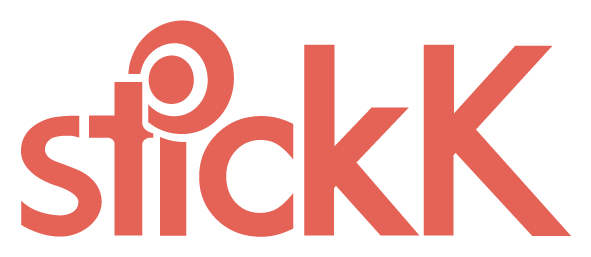
- StickK – This is an app-based commitment platform designed for those for whom the carrot (a reward) is less effective than the stick; in some circles, this is called loss aversion. Users sign “commitment contracts,” stating the amount of money they’re willing to put on the line to achieve their defined goals (for health, career, exercise, etc.). For example, if you don’t follow through, then the $250 you earmark will be given to a politician or charity you would never support. (If you achieve your goal, you get your money back and may earn some.) StickK’s stakes don’t have to be financial; they can be “reputational,” meaning you might have to publicly say or do something embarassing if you fail to achieve your goal. It’s not everyone’s cup of tea, but it is a bold option.
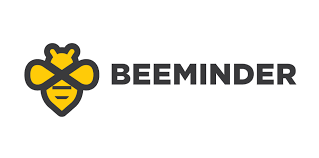
- Beeminder – The Core Beeminder level is free, gets you three trackable goals, and integrates with a wide variety of apps. There are three premium levels, which earn you an infinite number of trackable goals, customized goals, and options like text-bot responses and real-time support. You can self-report your achievements or connect the app to other apps, like Fitbit, Duolingo, Strava, Apple Health, and Todoist and let them report your achievements directly. This app has aspects of both the carrot (rewards) and the stick (lost challenges).
- Go F***ing Do It – This potty-mouthed (and name/logo-redacted) site lets you challenge yourself or others to commit to a task or project (cook every day, publish your book, etc.) by a specified date and pledge to pay a dollar amount of your choice if you fail to accomplish it. This is definitely more of a stick than a carrot!
- Pavlok – Billing itself as a habit-changing, Bluetooth wristband using tiny electric shocks, I have to be honest, I thought this was an early April Fool’s joke, but it seems to be for real. It tracks steps, activity, and sleep quality, can tell if you’re biting your nails or thinking obsessively about your ex, and uses vibration, sound, and LEDs as behavioral triggers and notifiers. Check out their approach to building good habits and eliminating bad ones via a combined carrot-and-stick approach:
PARTICIPATE IN AN EVENT
A variety of individuals and businesses offer virtual co-working events and platforms that provide group accountability.
- Sign up for an existing accountability event.
For years, I’ve been participating in my colleague Deb Lee‘s periodic Action Day events. A group of us register, join virtually, and announce what we intend to work on. We then mute our microphones, minimize the video (so we can still see if someone is making a silly face), and work.
We seek each other out in the Zoom text chat and meet on-camera for periodic breaks. The experience provides camaraderie and accountability, and Deb’s tech expertise means that if what we’re trying to work on involves a website, computer, or online kerfuffles, Deb will probably be able to save our bacon.
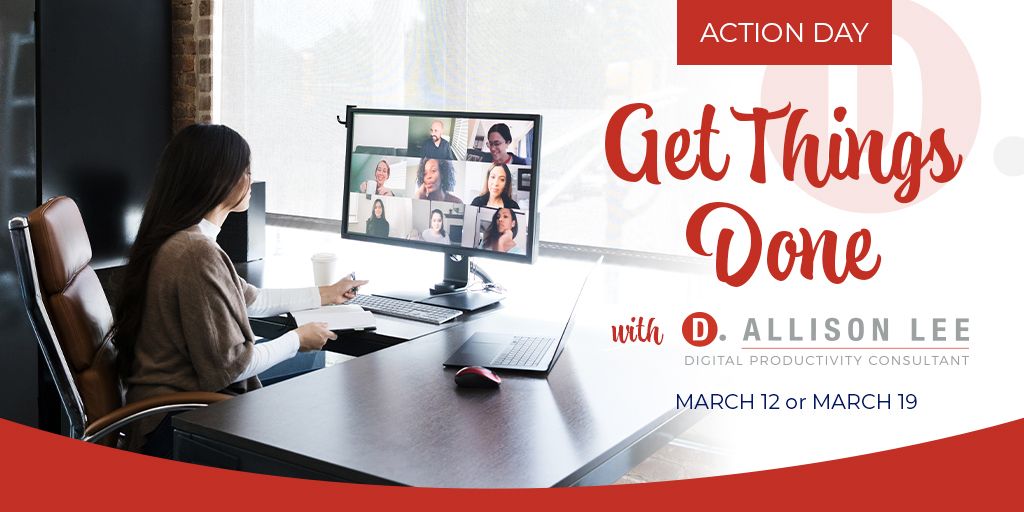
Deb has two upcoming events: Friday, March 12, 2021 (which is almost at capacity) and Friday, March 19, 2021 (which has more available spaces), both from 11 a.m. – 2 p.m. EST. You can register for a no-cost Action Day at her site.
I’ve noticed that specialists in other fields, including digital marketing, authorship and publishing, and design also offer these kinds of events (either for free or with a fee). In addition, many brick-and-mortar co-working spaces are running virtual events of this kind during the pandemic, so check in with the spaces in your community. They may also be referred to as accountability days, design sprints, or use other industry-specific names.
- Create your own accountability event.
Cat Johnson has an excellent blog post entitled 25 Virtual Coworking Ideas for Workspace Communities that might give you some ideas for getting started with an event for you and your friends, members of your mastermind group, or some willing social media almost-strangers.
- Join an online work gym.
I hadn’t heard the expression “work gym” until I began researching the topic, nor had I heard of “procrastination nannies,” but as of the start of the pandemic, virtual co-working for the purpose of conquering procrastination through accountability has become big business. Focusmate, discussed above, has a freemium approach, but there are two major for-profit players in this field:

Caveday originated as an pop-up program at companies and real-world co-working spaces but easily pivoted to the virtual world in 2020. Caveday offers 40-52 minutes-long “sprints” to optimize the brain’s focus capacity, combined with short, energizing breaks led by facilitators. Try a three-hour drop-in experience for $20, or embrace the full-on cave for $39.99/month for unlimited access.
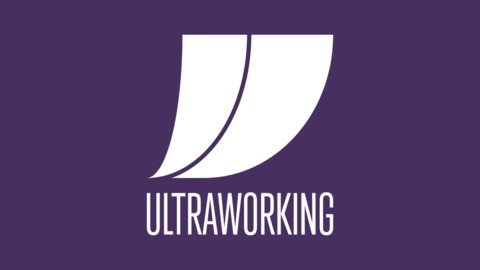
Ultraworking is the pricier option. Ultraworking offers a rolling schedule of 24/7 Zoom sessions, which they call work cycles, so that users don’t have to wait for a pre-scheduled session. The cost is $49//month, billed quarterly.
Whether you prefer a carrot or stick, whether you’d rather work with an individual or a group, whether you select a free option or pay to increase your commitment), I hope you find one or more accountability solutions to help you push through your procrastination and achieve your goals.
If you have an accountability tool or success story not mentioned here, please share in the comments section. And for more to help you be productive, be sure to check back for my next post, Flow and Faux (Accountability): Productivity, Focus, and Alex Trebek.




Julie–you never fail to provide your reader with plethora of ideas, resources, and choices–all sprinkled with novelty and humor!
I had no idea there were so many apps and websites committed to helping people prevent procrastination! They may work for some, but for most, I’d think that accountability through body doubling would be most effective. It takes a more motivation to be successfully accountable to a ‘machine.’ Having a human accountability partner offers different types of physical and emotional support that no app or device could ever provide.
OH, Stacey for your kind words! And would you believe, these were just the top of the heap. Almost 3000 words, and I could have blogged three times that much with other apps and services, but I have to leave something for next time, right? 😉
An app would be far too easy for me to ignore; I need a person (or, really, a group of persons) and an event to really see me through.
Thanks for reading!
Dobby and I are grateful for our monthly meetings. He tells me that he always feels more motivated to take naps and rides in the car after our meetings. On the other hand, I am energized to make progress on my work goals. Win-win-win!
Dobby provides the perfect on-screen accoundogbility for the process. I’m glad you both get what you like out of it! All the winning!
This is great stuff, Julie!
A friend approached me a few months ago about becoming accountability partners, and we’ve been meeting weekly every since (including during the holidays). We don’t just encourage each other to do what we need to, but work together to grow both our businesses, sharing skills and knowledge along the way. I highly recommend it!
Thanks, and yes, the right accountability partner can mean all the difference. I’m so glad you’ve found the right buddy for your business!
We’ve now been meeting weekly for over a year and it’s been so valuable. This is the longest accountability relationship I’ve had (there have been at least 3 others).
Great stuff! Procrastination is a hurdle that many people struggle with. Body doubling was the majority of my clientele over the years. Someone being there and following up with you allows you to keep moving, similar to when someone has a coach and wants to improve their health. Being accountable when organizing will focus on staying present in your decluttering process and resulting in, like a diet, losing weight in your home.
I couldn’t agree with you more, Sabrina. For a long time, I’d only thought of accountability in terms of providing it, professionally, but more and more, I’ve been thinking about the different ways we can accept it. Hence, this post!
When you mentioned that you wrote about accountability this week, I couldn’t wait to read it. But I never expected it to include so many resources and approaches. I don’t know why I’m surprised because you are so gifted at researching and sharing great ideas, products, and resources. While I’m familiar with a few of the apps and platforms you mentioned, most are new to me. I love that! Your commitment to having accountability partners is impressive. It sounds like you are involved in many ways, from group to one-on-one arrangements. Have you ever tried any of the apps? Or, do you prefer to work with an actual person as you described with Melissa, Jeri, or the NAPO Mastermind group?
The accountability component is a significant part of the work I do with my clients. When I worked in-person, it was their commitment to the on-site visits that was the main accountability piece. With virtual organizing, accountability is even more visible. Aside from the actual sessions, we communicated via text or email in between sessions. Also, the clients are the “do-ers” since I am not physically in-person to help organize. They take ownership and more accountable because of that dynamic.
Gracious, Linda, I’m blushing from all of those lovely compliments. I do love researching (and find it hard to stop, which is why my posts are all giant-sized).
I tried StickK a long time ago, but am never brave enough to put my hard-earned money where my mouth is; honestly, I need more than an app, but then again, I’m an extrovert, so I need people! I think my preferences depend on the purpose of the accountability. For big-picture thinking, Melissa is my go-to because she excels at the strategic approach. For lower-level procrastination and brainstorming, my mastermind girls are key. But to barrel through a project that stymies me, I really need an Action Day!
I think I still struggle with feeling like I’m providing enough accountability without the on-site component; I’m ready for the world to return to normal!
Wow, Julie, this is so thorough. I love the breadth of options you offer. The whole body doubling thing fascinated me. I think it sort of works for parents and children, especially during this time. If Mom will just sit down at the table with her own stack of work, it makes it easier for the kids to do the same. I have one client who can get a lot done when I am there, but just cannot when I’m not there. We’ve talked about, and options for finding accountability elsewhere, so we will see. I’ll share these options with her!
Thank you; thoroughness is my pride, but also my downfall because sometimes it’s hard to stop researching.
Your Mom example is apt, but I think it’s all so specific to the individual. If I need to sit quietly and research, study, read, or perform quiet tasks, a body double works great. However, if I need to do something creative, like writing a blog post, I need the mic-off, camera-on situation of an Action Day. I hope one of these options proves useful for your client!
I am soon oooo guilty of overloading my plate. I do this literally too – choosing vessels that are too small to hold what I think should fit (it’s a running joke between me and my husband.)
If I’m putting something off, I’ve learned that I need to look at my task list and spread things out a bit. A nap could also be in order.
So your eyes are bigger than your plate with tasks AND food? Good to know!
Should I take your reply to mean that accountability is not one of your go-to strategies?
I love how much information you always provide. You tell us everything we need to know and everything we didn’t know that we needed to know.
Basically if you can’t find it with Julie, I don’t think you’re going to find it.
This is as much about motivation as it is about accountability. Everyone has good trigger points. The stuff they will respond to and what works for them. I have colleagues who have been in mastermind groups for years.
I can’t wait to read what you have in store for us next!
Obviously, I need to hire you as my press agent, Ronni! You’re so lovely heap so much praise!
I’d be interested to hear what kind of accountability works for you, or if you don’t get your motivation externally, how you handle procrastination.
In answer to your question.
Sure I procrastinate, I’m human. I usually have a heart-to-heart with myself until I can no longer listen to my banter. I realize it’s less painful to jump in then hear my own gobble dy gook.
There are people who I trust, they’re smart and have excellent perspective. I’ll run my thoughts by them and as soon as I share, I know I’m accountable to them. They’re my accountability besties because they deliver.?
We all procrastinate, but if Gretchen Rubin is to be believed, the Rebels don’t feel the need to honor outside expectations, so I’m sure there are SOME people who don’t need external motivation. (I just don’t know any of them!)
And I think after 51 weeks of my pandemic year, I’m 100% gobbledygook in my conversations with myself! 😉
I love learning about all these accountability possibilities. Having non-judgemental support makes all the difference!
I have a feeling that in a number of years, we’ll have all sorts of AI/bot accountability options. That’s scary! I’ll stick with buddies/groups and events! Bots may be nonjudgmental, but without empathy, I fear they’ll lean too far in one direction or the other.
Julie, these are fabulous suggestions. Like many who have responded here, I knew about some and didn’t know about others. I would absolutely love to participate in Deb Lee’s work day event but I will be helping my son in Seattle at that time. I know I could certainly use a day like that.
Jonda and I participate in a goals group. We meet once a month here in Atlanta. We state our wins during the month that has been and our goals for the coming month. It is not really accountability because no one holds our feet to the fire. It’s more of a support system which is also lovely.
In my humble opinion, we all need accountability partners at sometime or other.
I think Deb is going to have more of these in the future, so we’ll see you at future events! Thanks for sharing your thoughts and experiences!
[…] Most popular post: Count on Accountability: 5 Productivity Support Solutions […]